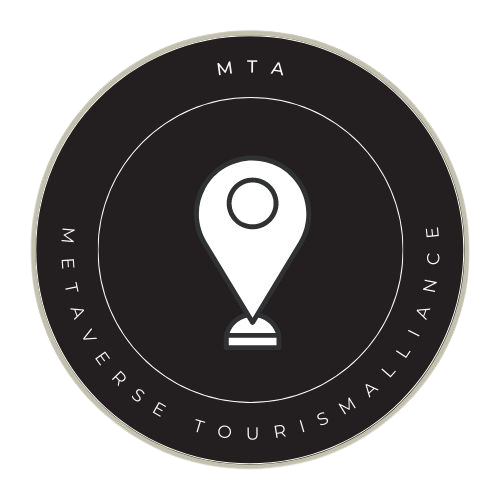As we navigate the hybrid future of travel it is important to take stock of the existing trends and analyse travel patterns that allow us to make informed decisions when building out new tourism products and infrastructure
Did you know that women are 17% more likely than men to plan their trips six months in advance, while men are 13% more likely to make spontaneous, last-minute bookings? Moreover, with the advent of online booking platforms, over 75% of women prefer to research and book their trips online, compared to 63% of men who still opt for traditional methods.
These gender differences in how we navigate the web begin to paint a picture of our online travel related behavior. Technology has changed how we experience new cultures and the way we travel, from booking flights to navigating foreign cities. Let’s take a closer look at some of the key trends and statistics that are shaping the future of travel.
20 Exciting Travel Trends to Keep an Eye On
1. Booking Habits
Mobile Dominance and last minute bookings: Over 70% of travelers now prefer to book their trips using mobile devices. The convenience of smartphones and tablets has transformed the way we plan and organize our travels, enabling us to make bookings on the go. Contrary to traditional planning, nearly 40% of travelers are now making spontaneous, last-minute bookings. This trend reflects a shift towards flexible travel arrangements, driven by a desire for spontaneity and adventure.
2. Experiential Travel
More than 80% of travelers prioritize experiences over material possessions when planning their trips. Whether it’s participating in cooking classes, wildlife safaris, or cultural tours, travelers are seeking meaningful and immersive experiences that enrich their journeys.
3. Artificial Intelligence (AI) and Machine Learning
Personalized Recommendations: AI-powered algorithms analyze vast amounts of data to offer personalized travel recommendations based on individual preferences and past behaviors. Over 60% of travelers value personalized recommendations when planning their trips, highlighting the growing importance of AI in enhancing the travel booking experience.
4. Augmented Reality (AR) and Virtual Reality (VR):
Nearly 50% of travelers express interest in using AR and VR to explore travel options, enabling them to make more informed decisions and enhance their overall travel experience. VR-powered virtual tours provide travelers with realistic and interactive experiences of destinations and landmarks, allowing them to explore iconic attractions from the comfort of their homes. Over 60% of travelers consider virtual tours a valuable resource for planning their trips, especially during times of travel restrictions and uncertainty.
5. Digital Payments: Contactless payment solutions and digital wallets offer convenience and security to travelers, allowing them to make transactions without physical contact. Over 80% of travelers prefer to use contactless payment methods when traveling, citing speed and hygiene as primary reasons for adoption.
6. Sustainability and Eco-Friendly Initiatives: Over 50% of travelers are willing to pay extra for eco-friendly travel options, reflecting a growing awareness and concern for environmental sustainability.
7. Data Security and Privacy: Blockchain technology provides secure and transparent solutions for managing travel data, including bookings, loyalty programs, and identity verification. Over 60% of travelers are concerned about data privacy and security when using online travel platforms, driving demand for blockchain-based solutions that offer enhanced protection against fraud and unauthorized access.
8. Bleisure Travel: 71% of business travelers extend their trips for leisure purposes, contributing to the growing trend of bleisure travel.
9. Digital Nomadism: The number of digital nomads is expected to reach 1 billion by 2035, as more professionals embrace remote work and location-independent lifestyles.
10. Sustainable Tourism: 87% of travelers believe it’s important to travel sustainably, with eco-friendly accommodations seeing a 20% increase in bookings over the past year.
11. Wellness Retreats: The wellness tourism market is projected to reach $919 billion by 2022, fueled by a growing demand for health-focused travel experiences.
12. Multi-Generational Travel: 72% of grandparents consider multi-generational vacations an opportunity to bond with their grandchildren and create lasting memories.
13. Voluntourism: Over 2 million travelers engage in voluntourism each year, contributing to community development projects and conservation efforts worldwide.
14. Solo Female Travel: Women make up 58% of solo travelers, with safety and empowerment being primary motivators for solo female travel.
15. Augmented Reality (AR) Travel Experiences: AR travel apps have seen a 130% increase in downloads over the past year, indicating growing interest in interactive travel guides.
16. Workations: 74% of remote workers are interested in taking workations, combining productivity with travel experiences in inspiring locations.
17. Eco-Friendly Accommodations: 67% of travelers prefer to stay in eco-friendly accommodations, driving the demand for sustainable lodging options.
18. Instagrammable Destinations: 48% of millennials prioritize travel destinations based on their Instagrammability, seeking picturesque backdrops for social media posts.
19. Heritage Travel: Ancestry travel has grown by 20% annually, as travelers explore their cultural roots and ancestral heritage through travel experiences.
20. Nomadic Sabbaticals: Nomadic sabbaticals are on the rise, with 65% of workers considering extended travel breaks to explore different lifestyles and cultures.
Travel behavior is as diverse and dynamic as the destinations we explore. From the way we book our trips to the experiences we seek, each traveler’s journey is shaped by unique preferences, motivations, and aspirations. Using technology today we can begin to understand and use tourist data in new ways to offer new customized experiences.
By understanding these the impact of some of these travel trends we gain valuable insights into the hybrid future of tourism. For more trends and to provide your insights please connect with us and join the MTA.

